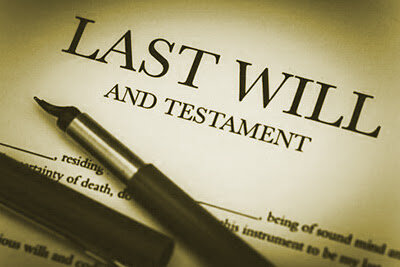Best Landlord & Tenant Lawyers in Providenciales
Share your needs with us, get contacted by law firms.
Free. Takes 2 min.
Free Guide to Hiring a Real Estate Lawyer
List of the best lawyers in Providenciales, Turks and Caicos Islands
About Landlord & Tenant Law in Providenciales, Turks and Caicos Islands
Landlord and Tenant law in Providenciales, Turks and Caicos Islands governs the relationship between owners of rental properties and those who rent or lease them. The legal framework seeks to protect the rights and interests of both landlords and tenants, ensuring fair access to housing while recognizing the responsibilities of property ownership. Whether you are entering into a short-term holiday let or a long-term residence agreement, knowing your rights and obligations is crucial. The law covers issues such as lease agreements, security deposits, rent payments, repairs, eviction procedures, and termination of tenancies. Understanding these basics can help avoid disputes and ensure a smooth rental experience.
Why You May Need a Lawyer
While many rental arrangements proceed without conflict, there are situations where you may need legal assistance in landlord and tenant matters. Common scenarios include disagreements over the return of security deposits, breaches of lease terms, questions about rent increases, concerns regarding property maintenance, or disputes leading to eviction. If you believe your rights are being violated, or if you are a landlord facing uncooperative tenants, a lawyer can provide guidance on the appropriate steps under local law. Legal representation is especially important when matters escalate to formal hearings or court proceedings. Seeking early legal advice can help resolve issues quickly and efficiently, saving time and reducing stress for everyone involved.
Local Laws Overview
In Providenciales, Turks and Caicos Islands, landlord and tenant relationships are primarily governed by the Turks and Caicos Islands Rent Control Ordinance and other locally enacted regulations. These laws outline key points such as:
- Required contents and terms for written lease agreements.
- Legal procedures and grounds for eviction, including notice periods.
- Guidelines regarding rent control in certain types of properties or districts.
- Obligations concerning property maintenance, repairs, and habitability standards.
- Processes for the collection and return of security deposits.
- Protections for tenants against unlawful eviction or discrimination.
It is important to note that rent control may not apply to all properties, such as those used primarily for tourism or commercial purposes. Both landlords and tenants must comply with these regulations to avoid penalties or legal disputes.
Frequently Asked Questions
What should be included in a lease agreement?
A lease agreement in Providenciales should include the names of both parties, property description, rental amount, payment terms, duration of the lease, security deposit details, and any rules regarding termination or renewals. Having it in writing helps prevent misunderstandings.
Is a written lease required by law?
While oral agreements are sometimes accepted, a written lease is always recommended for clarity and to satisfy legal requirements. Certain long-term leases may be required by law to be in writing.
How much can a landlord charge for a security deposit?
The amount of the security deposit is typically specified in the lease. There are no strict statutory limits, but the deposit should be reasonable and is usually equivalent to one month's rent.
What are my rights if my landlord does not make repairs?
Landlords are generally responsible for maintaining the property in a habitable condition. If repairs are not made after notification, tenants can seek legal advice or assistance from local authorities.
Can my landlord increase the rent during my lease?
Rent increases are usually only allowed when stipulated in the lease agreement or at the end of a lease term. In some cases, rent control laws may limit increases for certain properties.
How much notice must a landlord give for eviction?
Notice periods depend on the reason for eviction and the terms of the lease. For non-payment of rent, landlords often must provide written notice of at least 14 days, but this can vary.
What can I do if I believe I have been unfairly evicted?
If you are facing what you believe is an unlawful eviction, you should seek legal advice immediately. There are local procedures to challenge unfair evictions and protect your rights.
Are there rules about how many people can live in a rental property?
Occupancy limits may be included in the lease or set by local housing regulations to ensure health and safety standards are met.
Is subletting allowed?
Subletting is only permitted with the landlord's consent and should always be addressed in the lease agreement. Unauthorized subletting may result in eviction.
What happens if a tenant wants to end a lease early?
If a tenant wishes to break the lease early, they should review the lease terms. There may be penalties or specific procedures for early termination. Open communication with the landlord is advised to negotiate a solution.
Additional Resources
Several resources are available to help both landlords and tenants in Providenciales:
- The Turks and Caicos Islands Government’s Department of Housing for information on tenant and landlord rights.
- Legal Aid services that may be available for those with limited financial means.
- Local law firms specializing in property and real estate law.
- Community organizations that provide housing advice and support.
- Online government portals for forms, regulations, and updates on relevant laws.
Next Steps
If you are facing a landlord and tenant issue in Providenciales, here are some steps you can follow:
- Review your lease agreement and gather any relevant documentation or correspondence.
- Communicate openly with the other party to try to resolve the issue amicably.
- Contact the relevant government department or a local legal aid organization for initial guidance.
- If the matter cannot be resolved, consult an experienced lawyer for tailored legal advice and representation.
- Keep records of all meetings, communications, notices, and actions related to your matter.
By understanding your rights and knowing where to turn for help, you can better protect both your finances and your future in any rental situation.
Lawzana helps you find the best lawyers and law firms in Providenciales through a curated and pre-screened list of qualified legal professionals. Our platform offers rankings and detailed profiles of attorneys and law firms, allowing you to compare based on practice areas, including Landlord & Tenant, experience, and client feedback.
Each profile includes a description of the firm's areas of practice, client reviews, team members and partners, year of establishment, spoken languages, office locations, contact information, social media presence, and any published articles or resources. Most firms on our platform speak English and are experienced in both local and international legal matters.
Get a quote from top-rated law firms in Providenciales, Turks and Caicos Islands — quickly, securely, and without unnecessary hassle.
Disclaimer:
The information provided on this page is for general informational purposes only and does not constitute legal advice. While we strive to ensure the accuracy and relevance of the content, legal information may change over time, and interpretations of the law can vary. You should always consult with a qualified legal professional for advice specific to your situation.
We disclaim all liability for actions taken or not taken based on the content of this page. If you believe any information is incorrect or outdated, please contact us, and we will review and update it where appropriate.










